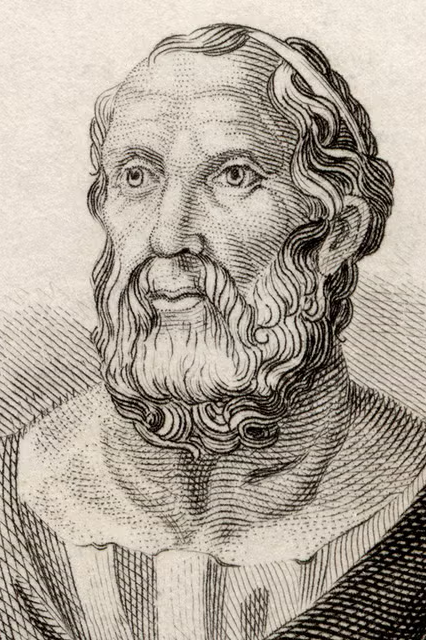Plato
Biography
Plato, one of the most influential figures in Western philosophy, was a student of Socrates and the teacher of Aristotle. His ideas on ethics, politics, education, and metaphysics shaped the course of human thought for centuries. Through his writings, especially in the form of dialogues, Plato explored the nature of truth, justice, and reality, laying the groundwork for modern philosophy.
Early Life and Education
Plato was born around 427 BCE in Athens, Greece, into an aristocratic family. His real name was Aristocles, but he became known by the nickname “Plato,” meaning “broad,” possibly referring to his physical build or the breadth of his intellect.
In his youth, Plato aspired to a career in politics. However, his encounter with Socrates changed his life. Socrates’ method of questioning and search for truth inspired Plato to turn toward philosophy. The execution of Socrates in 399 BCE deeply affected him and led him to abandon politics altogether, dedicating his life to philosophy and teaching.
Philosophical Career and Teachings
After Socrates’ death, Plato traveled widely, studying philosophy, mathematics, and science in places like Egypt and Italy. Upon returning to Athens, he founded the Academy around 387 BCE, often regarded as the first institution of higher learning in the Western world.
Plato’s works were written in the form of dialogues, with Socrates often appearing as the main speaker. Through these writings, he examined profound questions about justice, truth, virtue, love, and knowledge.
One of his most famous ideas is the Theory of Forms, which suggests that the material world is only a shadow of a higher, unchanging reality—the world of ideal forms. He believed that true knowledge could only be gained through reason and philosophical thought, not through sensory experience.
In his masterpiece “The Republic,” Plato described his vision of a just society ruled by philosopher-kings, emphasizing wisdom, harmony, and moral virtue as the foundation of good governance.
Death and Legacy
Plato continued to teach and write until his death around 347 BCE. His Academy lasted for nearly 900 years and influenced generations of thinkers, including his most famous student, Aristotle.
Plato’s ideas became the cornerstone of Western philosophy and education. His emphasis on reason, ethics, and the pursuit of truth continues to inspire scholars, teachers, and students around the world.
Conclusion
Plato’s life and teachings bridged the worlds of thought, ethics, and politics. By seeking eternal truths beyond the visible world, he inspired humanity to look beyond appearances and strive for wisdom and justice. His legacy remains timeless—a philosopher whose ideas continue to illuminate the path of human understanding.
